Did you know that almost 48% of your home’s energy usage comes from heating and cooling? We understand the importance of finding ways to be more energy efficient, which can help reduce costs and lessen your environmental footprint.
In this guide, we will walk you through everything you need to know about energy-efficient heat pumps for climate control. From understanding efficiency ratings to choosing the right size and maintaining your heat pump, we’ve got you covered.
Let’s get started on creating a comfortable and eco-friendly home together.
Key Takeaways
- Heat pumps transfer heat using a small amount of energy.
- Energy efficiency ratings provide information about performance and cost-effectiveness.
- Undersized or oversized heat pumps can result in increased energy consumption and discomfort.
- Air source heat pumps are generally more affordable and easier to install, while ground source heat pumps are more efficient and provide consistent heating and cooling.
The Basics of Heat Pumps
We’ll now delve into the basics of heat pumps, which are essential for understanding their energy-efficient climate control capabilities. Heat pumps are devices that transfer heat from one area to another, using a small amount of energy. There are three main types of heat pumps: air-source, ground-source, and water-source heat pumps.
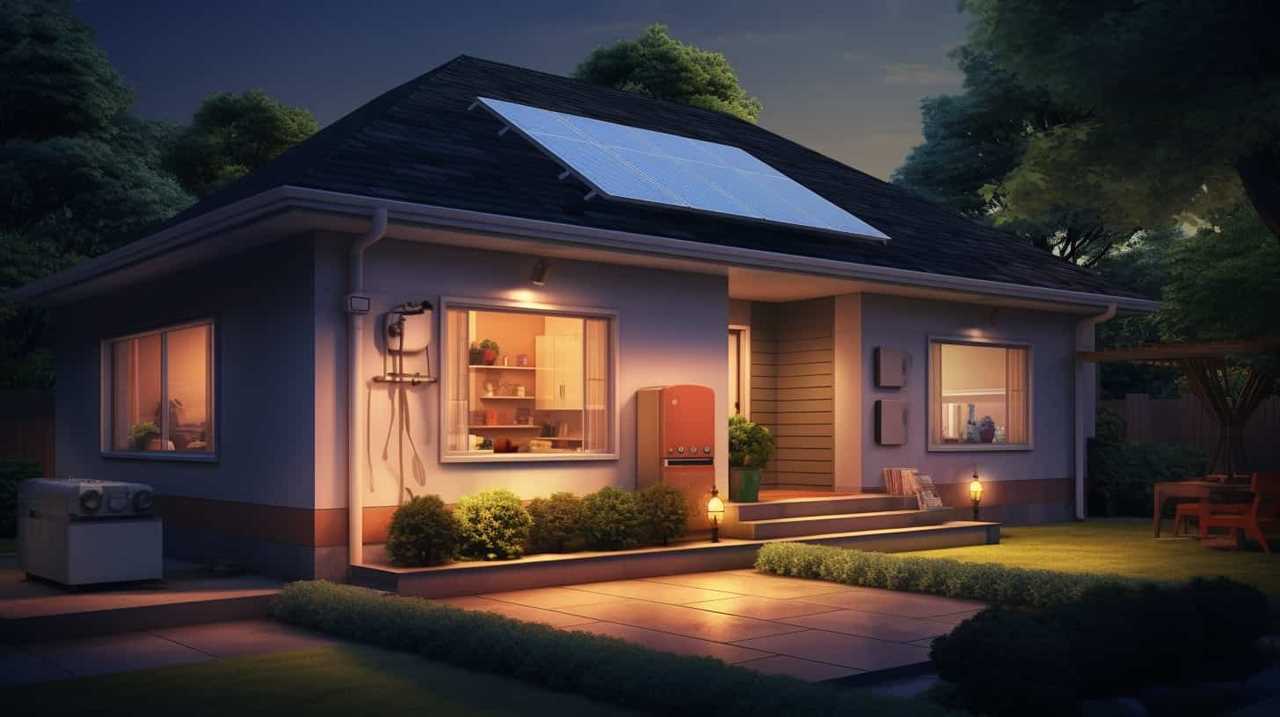
Air-source heat pumps extract heat from the air outside and transfer it inside, while ground-source heat pumps extract heat from the ground and transfer it indoors. Water-source heat pumps, on the other hand, extract heat from a water source, such as a lake or pond.
One common misconception about heat pumps is that they only provide heat. However, heat pumps can also cool spaces by reversing the process and removing heat from indoor areas. Another misconception is that heat pumps aren’t effective in colder climates. While it’s true that air-source heat pumps may be less efficient in extremely cold temperatures, advancements in technology have made them suitable for most climates. Ground-source and water-source heat pumps, on the other hand, aren’t affected by outdoor temperatures and can provide consistent heating and cooling throughout the year.
Understanding Energy Efficiency Ratings
Let’s explore the importance of understanding energy efficiency ratings when it comes to heat pumps for climate control. Energy efficiency ratings provide valuable information about the performance and cost-effectiveness of heat pumps. Here are four key reasons why understanding these ratings is crucial:
-
Benefits of energy efficient heat pumps: Higher energy efficiency ratings mean lower energy consumption, leading to reduced utility bills and a smaller carbon footprint.
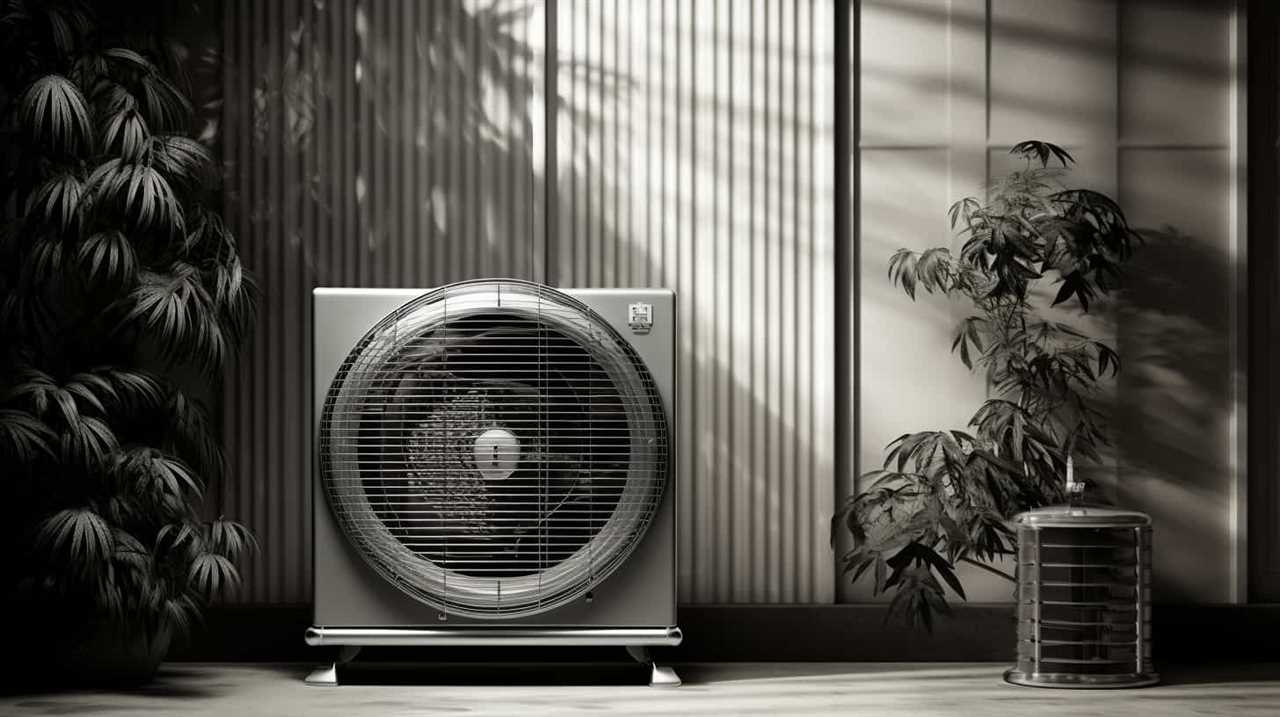
-
Cost savings: Energy efficient heat pumps can save you money in the long run by minimizing energy waste and optimizing performance.
-
Importance of proper maintenance: Regular maintenance ensures that your heat pump operates at its peak efficiency, maximizing its energy-saving potential.
-
Troubleshooting: Understanding energy efficiency ratings can help you identify and address any issues that may be affecting your heat pump’s performance, saving you from unnecessary expenses.
Now that we understand the importance of energy efficiency ratings, let’s move on to the next section about choosing the right size heat pump for your space.

Choosing the Right Size Heat Pump for Your Space
We can ensure optimal performance and efficiency by choosing the right size heat pump for our space. Heat pump sizing involves calculating the capacity needed to adequately heat or cool a given area.
Undersized heat pumps will struggle to meet the desired temperature, resulting in increased energy consumption and discomfort. On the other hand, oversizing the heat pump can lead to short cycling, where the unit turns on and off frequently, wasting energy and reducing the lifespan of the equipment.
To determine the appropriate size, factors such as the square footage of the space, insulation levels, local climate, and the number of occupants must be considered. It’s recommended to consult with a professional HVAC technician who can perform a detailed load calculation to accurately size the heat pump for maximum efficiency and comfort.
How Heat Pumps Work in Different Climates
Heat pumps operate differently depending on the climate they’re used in. Understanding how heat pumps work in different climates is important for ensuring optimal performance and efficiency. Here are four key factors to consider:
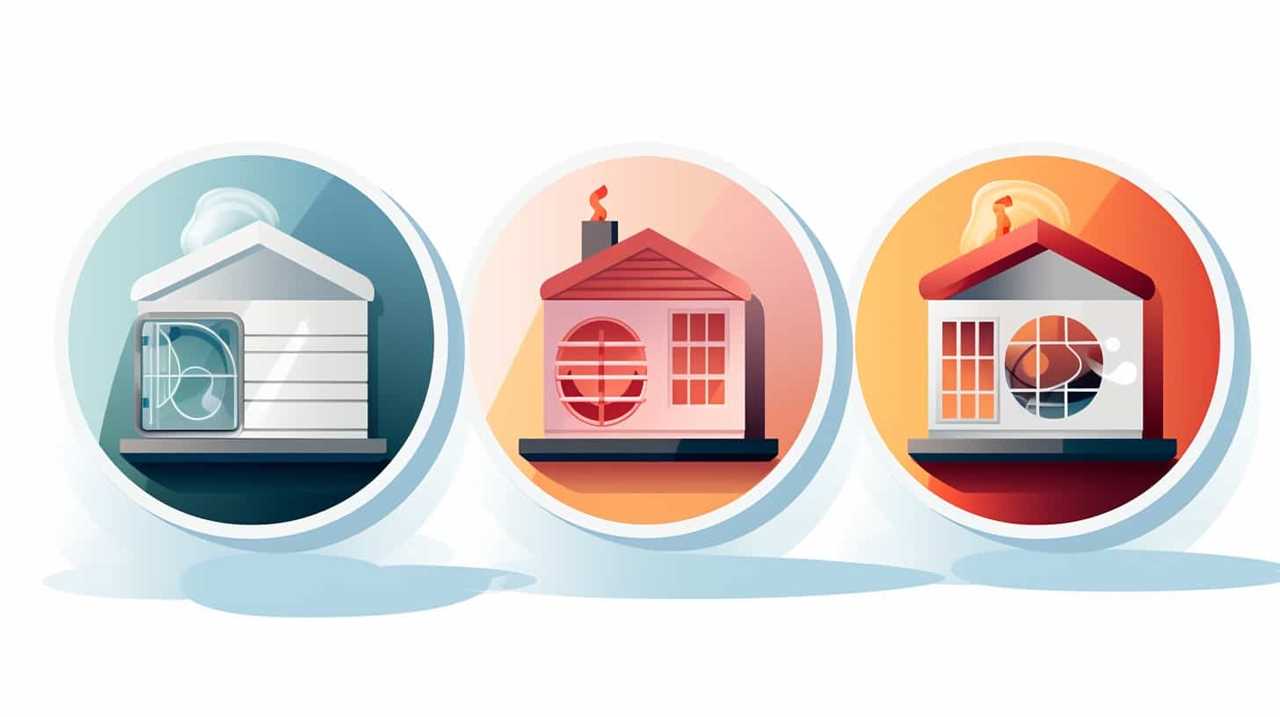
-
Temperature range: Heat pumps work best in moderate climates where the outdoor temperature remains above freezing. In colder climates, heat pumps may struggle to extract sufficient heat from the outdoor air, resulting in reduced performance.
-
Defrost cycles: In colder climates, heat pumps may enter defrost cycles to remove ice buildup on the outdoor unit. This temporary interruption in heating can affect overall performance and efficiency.
-
Heat pump maintenance: Regular maintenance is crucial to keep the heat pump operating effectively in any climate. This includes cleaning the coils, checking refrigerant levels, and inspecting electrical connections.
-
Supplemental heating: In colder climates, it may be necessary to have a backup heating system, such as electric resistance heating, to provide additional warmth during extremely cold periods.
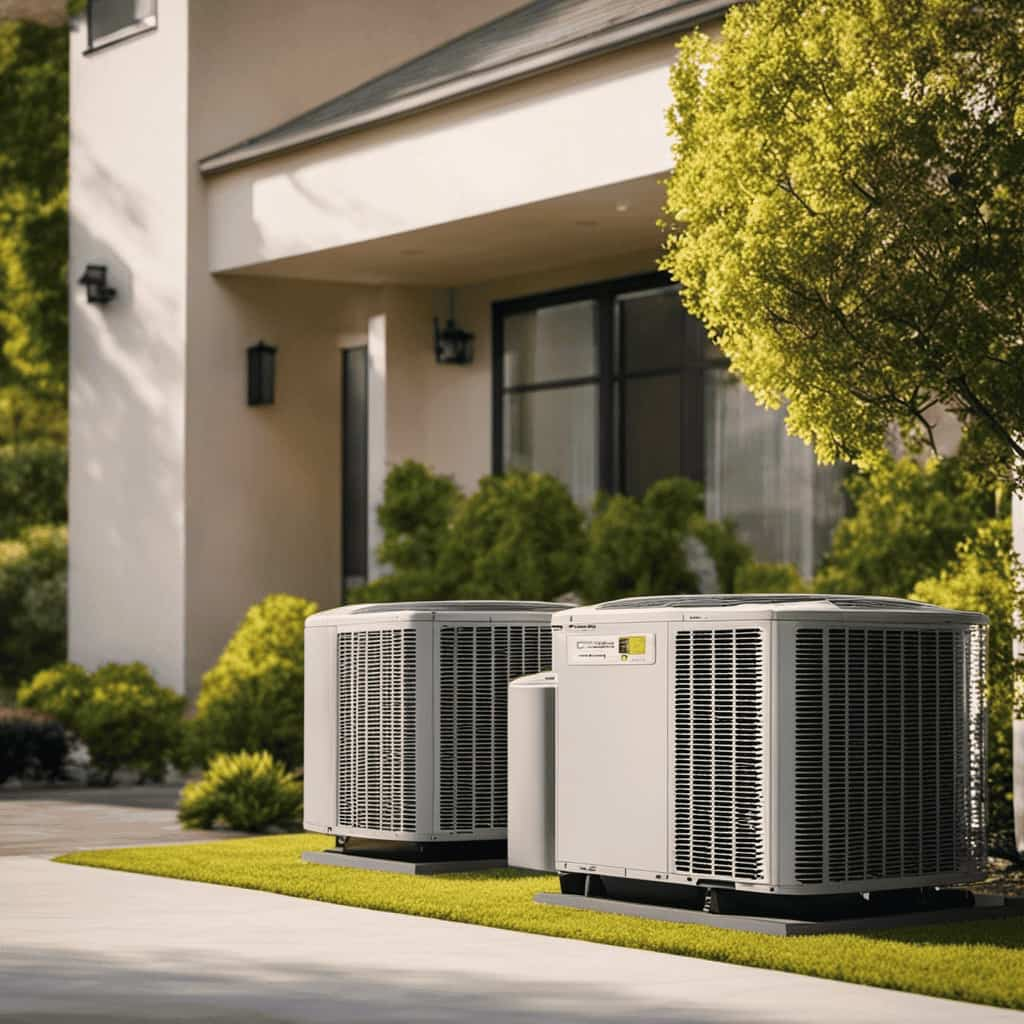
Comparing Air Source and Ground Source Heat Pumps
When comparing air source and ground source heat pumps, it’s important to consider their efficiency, cost, and suitability for different climates.
Efficiency is a crucial factor to consider as it directly impacts the energy consumption and operating costs of the heat pump. Air source heat pumps typically have lower upfront costs compared to ground source heat pumps, but they may be less efficient in colder climates.
Ground source heat pumps, on the other hand, tend to have higher upfront costs but can provide more consistent heating and cooling throughout the year.
Conducting a cost analysis that takes into account the initial investment, operating costs, and potential energy savings can help determine which type of heat pump is more cost-effective in a specific climate.
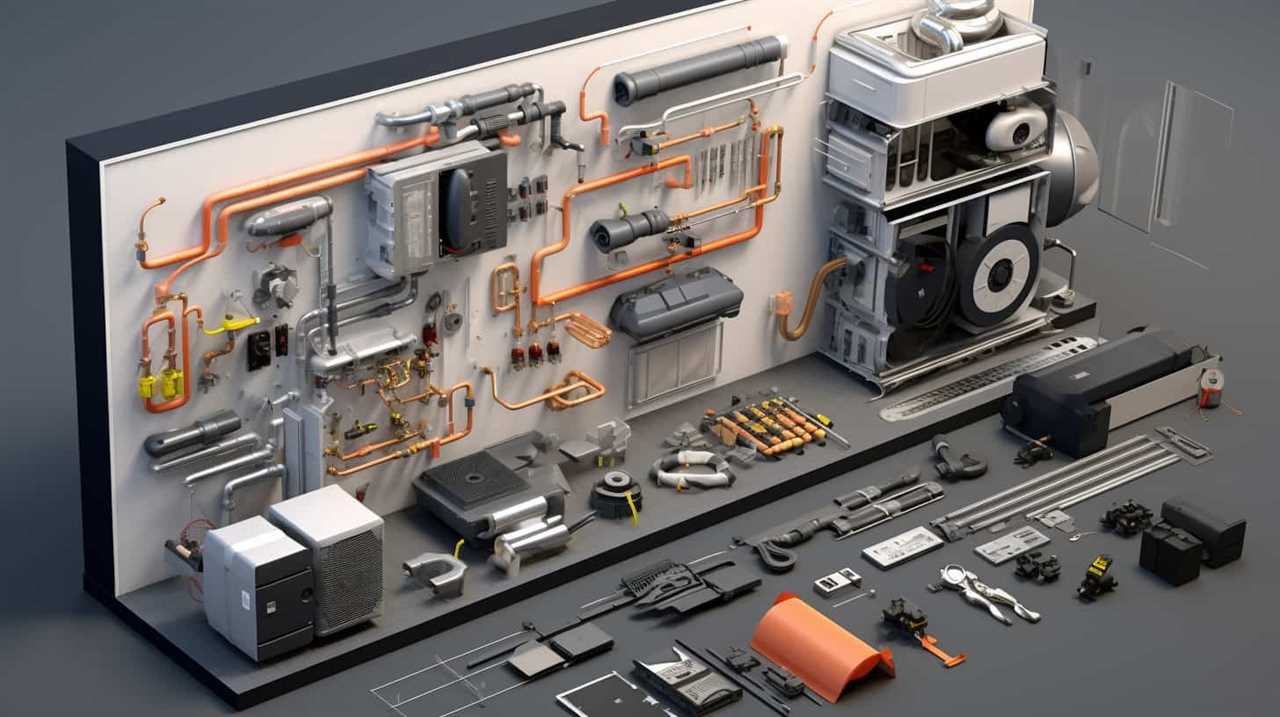
Tips for Proper Heat Pump Installation
By following these simple steps, you can ensure a proper heat pump installation and maximize its performance. Here are some helpful tips to keep in mind:
-
Size matters: Avoid the common mistake of selecting a heat pump that’s either too large or too small for your space. A correctly sized heat pump is crucial for efficient operation and energy savings.
-
Proper placement: Choose a suitable location for your heat pump installation. Ensure it’s away from obstructions, such as shrubs or fences, to allow for proper airflow and easy maintenance access.
-
Adequate insulation: Insulate your home properly to prevent heat loss and reduce the load on your heat pump. This will help improve its efficiency and overall performance.

-
Professional installation: Hiring a qualified technician for the installation is essential. They’ve the expertise to ensure all connections, wiring, and refrigerant levels are correctly set up, preventing potential issues and maximizing the lifespan of your heat pump.
Following these tips will help you avoid common mistakes and ensure a smooth and efficient heat pump installation.
Maintaining and Troubleshooting Your Heat Pump
To ensure optimal performance and address any potential issues, we recommend regularly maintaining and troubleshooting your heat pump. By following a maintenance checklist and utilizing troubleshooting techniques, you can keep your heat pump running efficiently and extend its lifespan.
First, let’s discuss the maintenance checklist. Regularly inspect and clean the filters to ensure proper airflow and prevent dust buildup. Clean the coils and fins, removing any debris or dirt that may hinder heat transfer. Check the refrigerant levels and ensure they’re within the manufacturer’s recommended range. Lubricate the fan motor and check for any loose or damaged electrical connections.
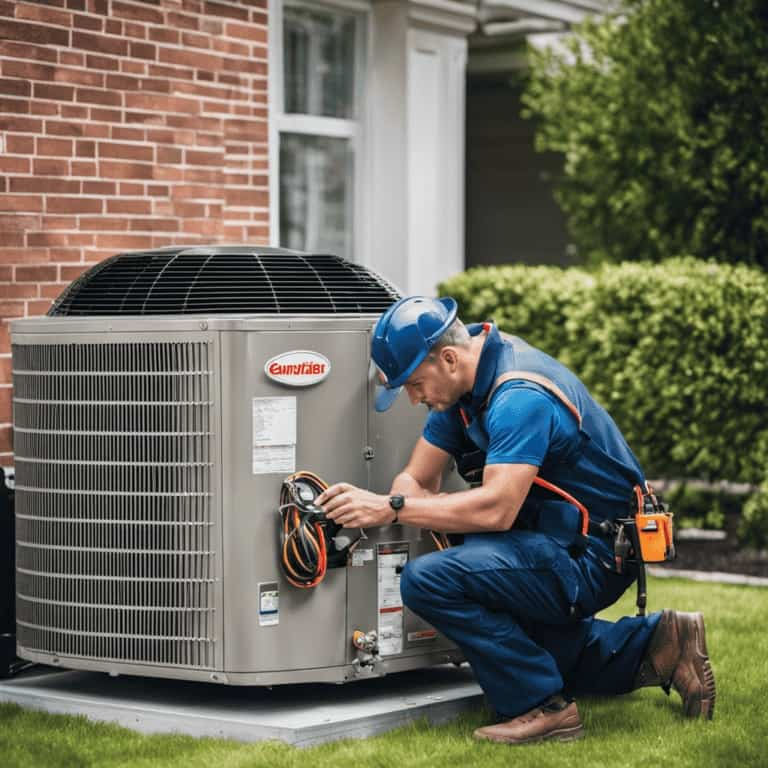
When it comes to troubleshooting, start by checking the power supply. Ensure that the unit is receiving power and that all circuit breakers are in the correct position. If the heat pump isn’t heating or cooling properly, check the thermostat settings and make sure it’s set to the desired temperature. If there are unusual noises or vibrations, inspect the fan blades and motor for any damage or obstructions.
The Benefits of Energy-Efficient Heat Pumps
One of the main benefits of energy-efficient heat pumps is that they can significantly reduce our monthly heating and cooling costs. Here are the advantages and savings associated with using energy-efficient heat pumps:
-
Lower Energy Bills: Energy-efficient heat pumps consume less electricity compared to traditional heating and cooling systems. This translates into substantial savings on your energy bills.
-
Reduced Carbon Footprint: By using less energy, energy-efficient heat pumps help to reduce greenhouse gas emissions. This contributes to a cleaner and healthier environment for future generations.
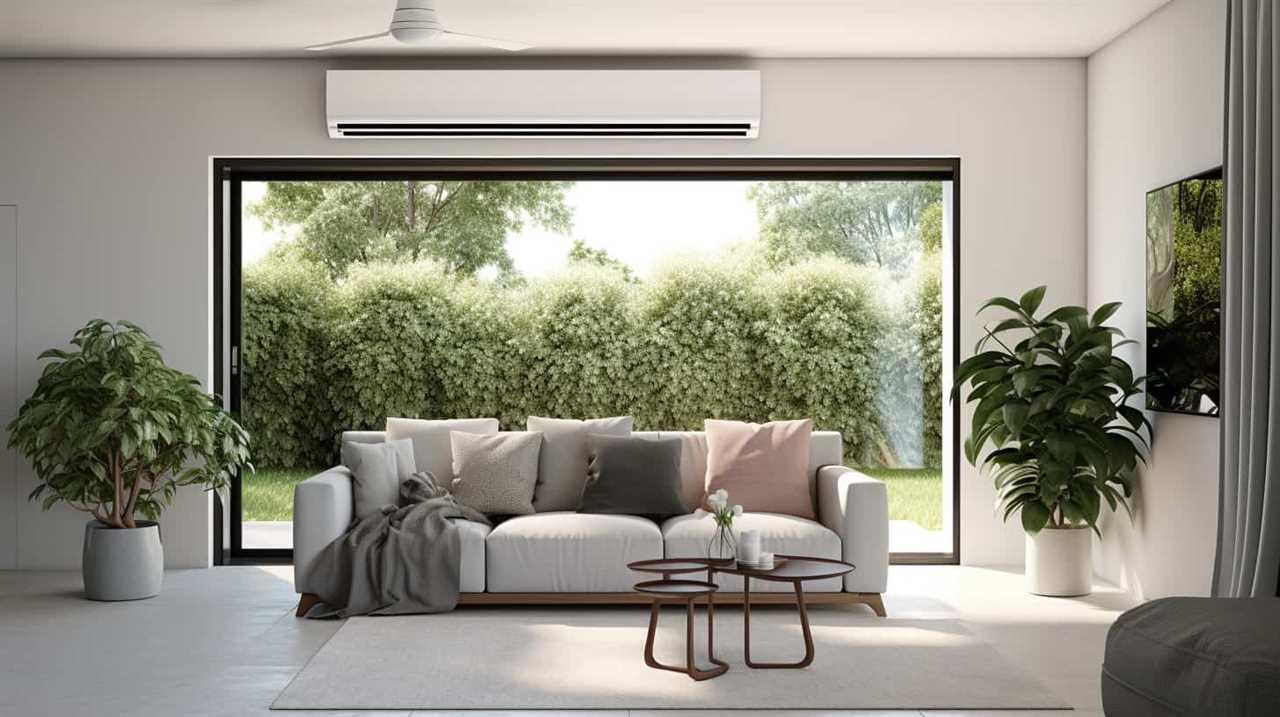
-
Increased Comfort: Energy-efficient heat pumps provide consistent heating and cooling throughout your home, ensuring a comfortable living environment all year round.
-
Long-Term Savings: Although energy-efficient heat pumps may have a higher upfront cost, the long-term savings outweigh the initial investment. With lower energy bills and reduced maintenance costs, you can enjoy significant savings over the lifespan of the heat pump.
Government Incentives and Rebates for Heat Pump Upgrades
When considering heat pump upgrades, it is important to explore the government incentives and rebates available to help offset the costs. These incentives can provide significant financial savings and make the decision to upgrade to a more energy-efficient heat pump even more appealing. The government recognizes the importance of reducing energy consumption and carbon emissions, and therefore offers various programs to encourage homeowners and businesses to make the switch.
To give you an idea of the available incentives and rebates, here is a table outlining some of the programs offered by different government entities:

| Government Entity | Program Name | Incentives |
|---|---|---|
| Federal | Residential Energy Efficiency Property Credit | 26% tax credit for installation costs |
| State | Energy Efficiency Rebate Program | Cash rebates based on heat pump efficiency |
| Local Utility | Heat Pump Upgrade Incentive | Reduced electricity rates for heat pump users |
| Municipal | Green Building Incentive | Property tax reductions for energy-efficient upgrades |
| State | Low-Income Weatherization Assistance Program | Financial assistance for low-income households |
Frequently Asked Questions
Can a Heat Pump Be Used for Both Heating and Cooling Purposes?
Yes, a heat pump can be used for both heating and cooling purposes. It offers high heat pump efficiency and numerous advantages, such as energy savings, year-round comfort, and environmentally-friendly operation.
What Is the Average Lifespan of a Heat Pump?
The average lifespan of a heat pump depends on various factors, such as regular maintenance and usage. With proper care, a heat pump can last anywhere from 10 to 15 years. Regular maintenance is crucial to ensure optimal performance and longevity.
Are Heat Pumps Suitable for All Types of Homes?
Heat pumps are suitable for most homes, offering energy-efficient climate control. In cold climates, their benefits include high heat pump efficiency, providing warmth even in freezing temperatures. They are a reliable choice for all types of homes.
Can a Heat Pump Be Installed in an Existing Home or Only in New Constructions?
Yes, a heat pump can be installed in an existing home. The installation process involves evaluating the home’s heating system, determining the best location for the heat pump, and making any necessary modifications. The cost of installing a heat pump can vary, but it is often comparable to traditional HVAC systems.
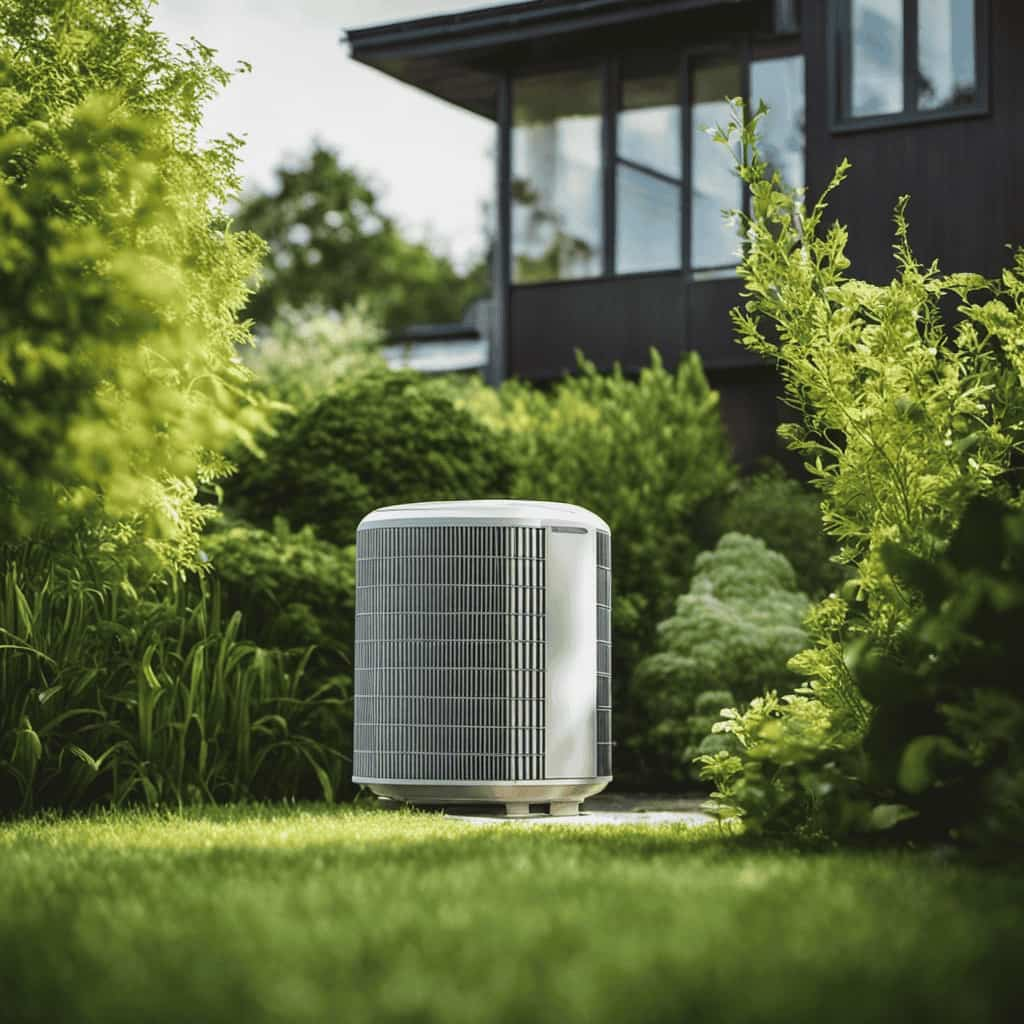
How Do Heat Pumps Compare to Traditional Heating and Cooling Systems in Terms of Energy Consumption and Cost?
Heat pumps are more energy efficient and cost-effective compared to traditional heating and cooling systems. A thorough energy efficiency comparison and cost effectiveness analysis will be conducted to provide detailed information in our guide.
Conclusion
In conclusion, energy-efficient heat pumps are a practical and environmentally friendly solution for climate control. By understanding their basics, energy efficiency ratings, and proper sizing, you can ensure optimal performance.
Whether you live in a warm or cold climate, both air source and ground source heat pumps have their advantages. Proper installation, maintenance, and troubleshooting are crucial for maximizing their benefits.
Additionally, taking advantage of government incentives and rebates can make upgrading to a heat pump even more advantageous.










